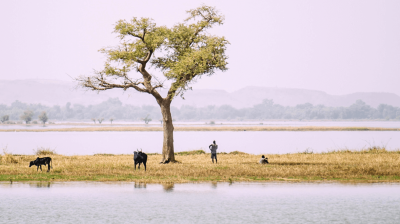State of the Climate in Africa 2023
- Temperature increases in Africa slightly above the global average
- Multi-year droughts continued in northwest Africa in 2023
- Extreme floods caused severe losses and damages
- African countries face increasing climate change bill
- Investment in early warnings will protect lives and economies
Africa bears an exceptionally heavy burden from climate change and disproportionately high costs for essential climate adaptation. On average, African countries are losing 2-5% of GDP and many are diverting up to 9% of their budgets responding to climate extremes. In sub-Saharan Africa, the cost of adaptation is estimated to range from US$ 30-50 billion annually over the next decade, or 2-3% of the region's Gross Domestic Product.
By 2030, it is estimated that up to 118 million extremely poor people (living on less than US$ 1.90 per day) will be exposed to drought, floods and extreme heat in Africa, if adequate response measures are not put in place. This will place additional burdens on poverty alleviation efforts and significantly hamper growth.
The report focussed on climate change indicators and impacts in 2023 – globally the hottest year on record.
African countries need to prioritise increased investment in National Meteorological and Hydrological Services, and accelerate implementation of the Early Warnings For All initiative to save lives and livelihoods. This will help mitigate risks, build adaptive capacity, boost resilience at local, national, and regional levels and guide sustainable development strategies, says the report.
WMO, the African Union Commission, UN Economic Commission for Africa and the African Ministerial Conference for Meteorology released the report in collaboration with partners at the 12th Climate Change for Development in Africa (CCDA) Conference in Abidjan, Cote d’Ivoire on 2 September 2024.
State of the Climate in Africa 2023
About the State of the Climate in Africa series
The State of the Climate in Africa report provides details of extreme weather and climate change impacts in the entire region, from the Sahara to the Serengeti and from coastal waters to mountain peaks.




